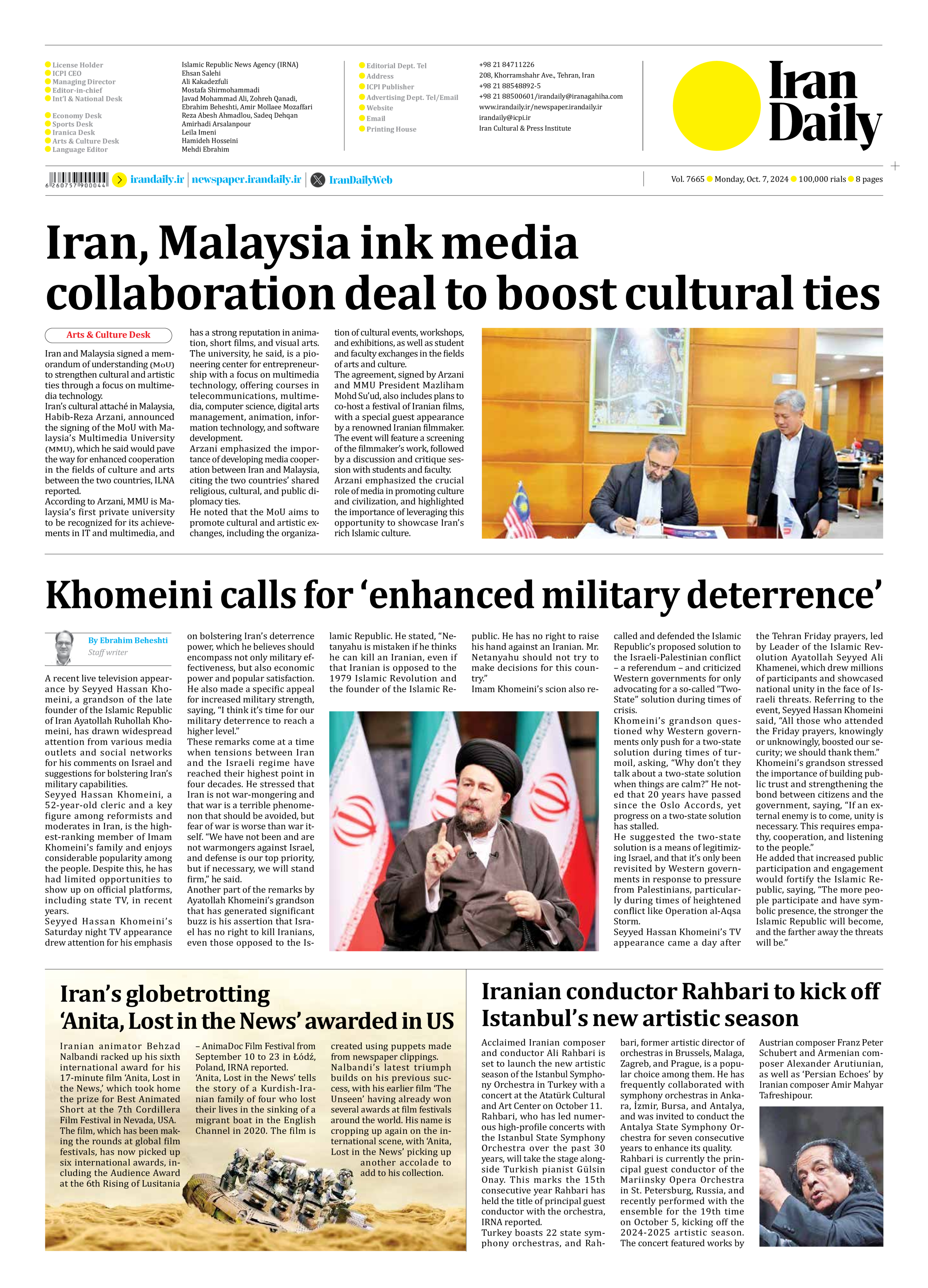
Khomeini calls for ‘enhanced military deterrence’
By Ebrahim Beheshti
Staff writer
A recent live television appearance by Seyyed Hassan Khomeini, a grandson of the late founder of the Islamic Republic of Iran Ayatollah Ruhollah Khomeini, has drawn widespread attention from various media outlets and social networks for his comments on Israel and suggestions for bolstering Iran’s military capabilities.
Seyyed Hassan Khomeini, a 52-year-old cleric and a key figure among reformists and moderates in Iran, is the highest-ranking member of Imam Khomeini’s family and enjoys considerable popularity among the people. Despite this, he has had limited opportunities to show up on official platforms, including state TV, in recent years.
Seyyed Hassan Khomeini’s Saturday night TV appearance drew attention for his emphasis on bolstering Iran’s deterrence power, which he believes should encompass not only military effectiveness, but also economic power and popular satisfaction. He also made a specific appeal for increased military strength, saying, “I think it’s time for our military deterrence to reach a higher level.”
These remarks come at a time when tensions between Iran and the Israeli regime have reached their highest point in four decades. He stressed that Iran is not war-mongering and that war is a terrible phenomenon that should be avoided, but fear of war is worse than war itself. “We have not been and are not warmongers against Israel, and defense is our top priority, but if necessary, we will stand firm,” he said.
Another part of the remarks by Ayatollah Khomeini’s grandson that has generated significant buzz is his assertion that Israel has no right to kill Iranians, even those opposed to the Islamic Republic. He stated, “Netanyahu is mistaken if he thinks he can kill an Iranian, even if that Iranian is opposed to the 1979 Islamic Revolution and the founder of the Islamic Republic. He has no right to raise his hand against an Iranian. Mr. Netanyahu should not try to make decisions for this country.”
Imam Khomeini’s scion also recalled and defended the Islamic Republic’s proposed solution to the Israeli-Palestinian conflict – a referendum – and criticized Western governments for only advocating for a so-called “Two-State” solution during times of crisis.
Khomeini’s grandson questioned why Western governments only push for a two-state solution during times of turmoil, asking, “Why don’t they talk about a two-state solution when things are calm?” He noted that 20 years have passed since the Oslo Accords, yet progress on a two-state solution has stalled.
He suggested the two-state solution is a means of legitimizing Israel, and that it’s only been revisited by Western governments in response to pressure from Palestinians, particularly during times of heightened conflict like Operation al-Aqsa Storm.
Seyyed Hassan Khomeini’s TV appearance came a day after the Tehran Friday prayers, led by Leader of the Islamic Revolution Ayatollah Seyyed Ali Khamenei, which drew millions of participants and showcased national unity in the face of Israeli threats. Referring to the event, Seyyed Hassan Khomeini said, “All those who attended the Friday prayers, knowingly or unknowingly, boosted our security; we should thank them.”
Khomeini’s grandson stressed the importance of building public trust and strengthening the bond between citizens and the government, saying, “If an external enemy is to come, unity is necessary. This requires empathy, cooperation, and listening to the people.”
He added that increased public participation and engagement would fortify the Islamic Republic, saying, “The more people participate and have symbolic presence, the stronger the Islamic Republic will become, and the farther away the threats will be.”







